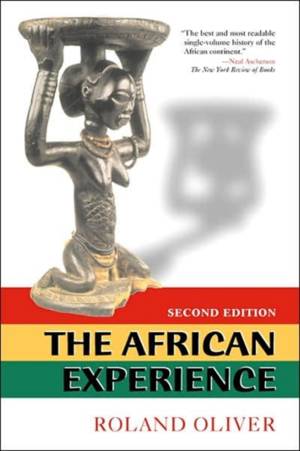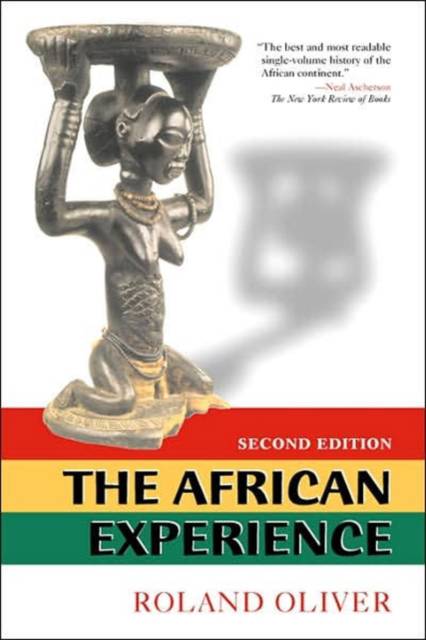
- Retrait gratuit dans votre magasin Club
- 7.000.000 titres dans notre catalogue
- Payer en toute sécurité
- Toujours un magasin près de chez vous
- Retrait gratuit dans votre magasin Club
- 7.000.0000 titres dans notre catalogue
- Payer en toute sécurité
- Toujours un magasin près de chez vous
102,45 €
+ 204 points
Format
Description
This masterpiece of scholarship and compression, the second edition of The African Experience, covers the entire span of human history across the African continent, from the earliest emergence of hominids in eastern and southern Africa up to the present day. Drawing on more than forty years of teaching and research, Professor Oliver arranges the book thematically, beginning with the human colonization of the different regions of Africa, the origins of food production, and the formation of African languages.The achievements of Ancient Egypt are placed in context with the developments in the rest of the continent, and the spread of Judaism, Christianity, and Islam - "peoples of the book." The tradition of urban settlement is traced, especially in western Africa, as well as the emergence of large and complex societies formed by the interaction of pastoralists and cultivators in eastern and southern Africa.The extent and nature of slavery in Africa is fully discussed, together with the external slave trade and the caravan trade in precolonial times. This leads to an analysis of the strengths and weaknesses of African political systems and why, from the early nineteenth century onwards, these systems were unable to withstand political pressure from abroad and the ensuing colonization. The colonial partition of Africa saw the rapid amalgamation of small units, through which considerable modernization was achieved at the expense of the indigenous structures and through the exploitation of the African peoples. Later chapters describe the birth of modern African nation-states, at a time of widespread belief in state planning - now being questioned as the political elites of black Africa begin to review their single-party systems. This new edition sees a number of revisions, including a new chapter on the 1990s, when the end of the Cold War left Africa free at last to try to solve its own problems.
Spécifications
Parties prenantes
- Auteur(s) :
- Editeur:
Contenu
- Nombre de pages :
- 368
- Langue:
- Anglais
Caractéristiques
- EAN:
- 9780813390420
- Date de parution :
- 31-07-00
- Format:
- Livre broché
- Format numérique:
- Trade paperback (VS)
- Dimensions :
- 153 mm x 228 mm
- Poids :
- 503 g

Les avis
Nous publions uniquement les avis qui respectent les conditions requises. Consultez nos conditions pour les avis.






